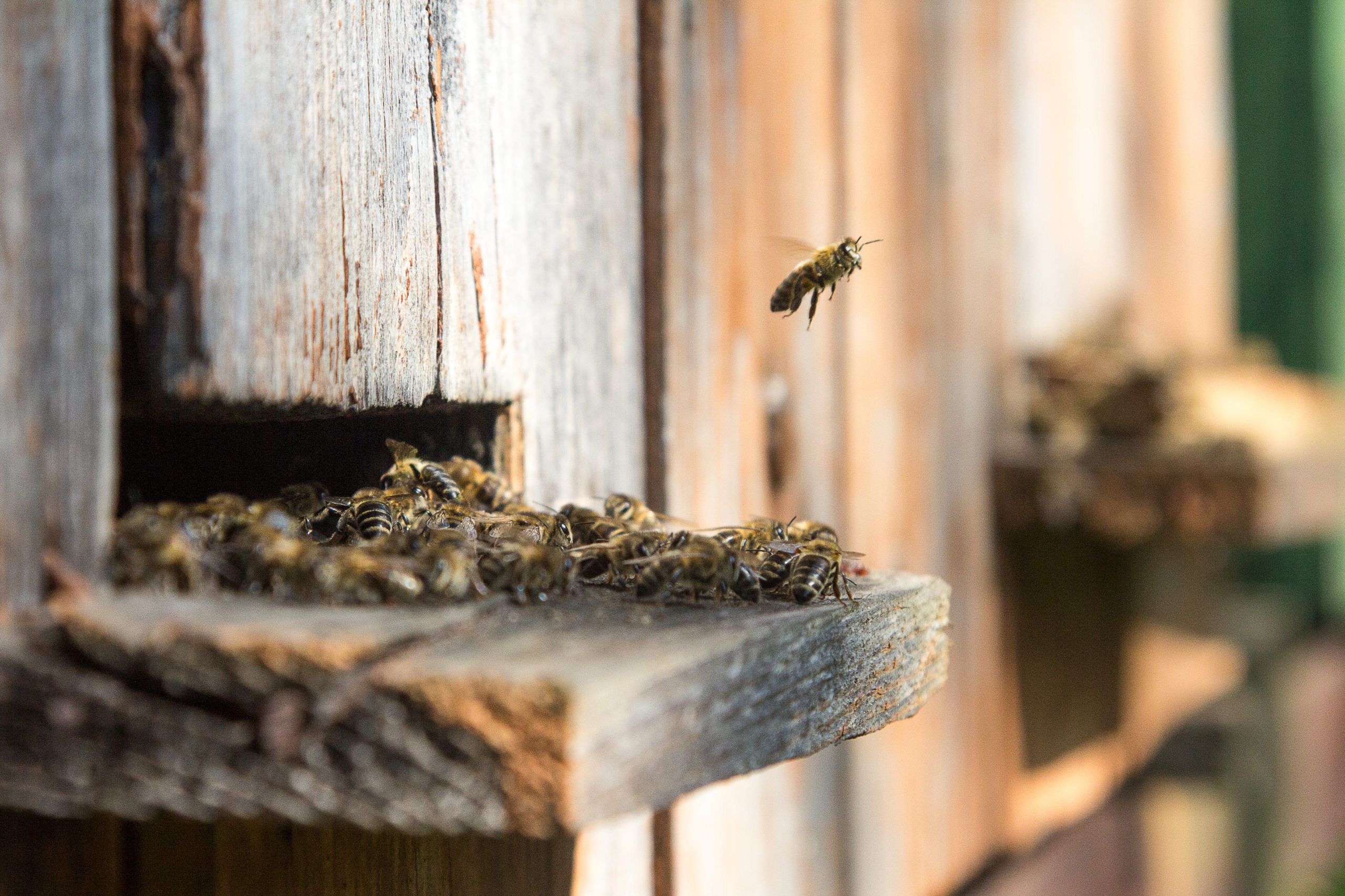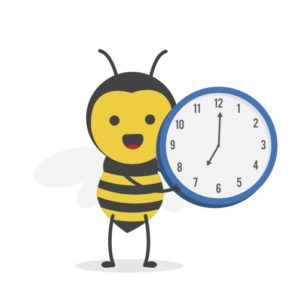Bees Can Perceive Time
Bees Can Perceive Time
“On the Time Memory of Bees”
During the early 20th Century, a German ethnologist by the name of Ingeborg Beling who specialized in the field of chronobiology (the study of “natural physiological rhythms and other cyclical phenomena”) conducted a series of tests on bees. The aim of the experiment was to see if the bees would be able to recognize the passage of time and, more specifically, if they could tell what time of day it is.
Each day at 4pm, the scientists on Beling’s team would place sugar water outside of the bee’s hive. After a few days, the bees would exit the hive at 4pm to access the newly delivered sugar water. Once the pattern was established, the scientists stopped providing sugar water, but the bees continued to come out at 4pm every day.
The results of the experiment were met with some skepticism. While it seemed that the bees were perceiving time, there were other factors present that could have been skewing the results. One theory suggested that the repeated behavior may have been due to light cues at the time of the day. Due to this, the test was repeated in a new atmosphere: complete darkness. When the bees still left the hive at 4pm, the results were again questioned, but this time, with the theory that the bees were detecting the change in heat from the sun as opposed to the angulation of the light.
So, the test was conducted once again, this time, underground in a dark salt mine to deprive the bees of light and heat from the sun. True to their hypothesis, the bees continued to exit the hive at 4pm to look for the sugar water. These results were all documented in Beling’s 1929 paper “Über das Zeitgedächtnis der Bienen” (“On the Time Memory of Bees”).

More Questions
While the results of Beling’s experiments seemed conclusive, it was still met with criticism within the scientific community. The leading hypothesis challenging the results asserted that the bees were detecting Earth’s rotation instead of time, though many scientists argued that such detection would be far beyond the ability of simply perceiving time.
In response to these declarations, chronobiologist Max Renner of the University of Munich recreated the experiment in 1960 in Paris, France. After establishing a pattern with the bees as they had done in Beling’s tests, Renner travelled with the bees to New York, United States. He once again conducted the experiment in this new location and there was an incredibly notable change: the bees came out at 10am. This would have been the correct time back in Paris, meaning the bees were affected by jetlag!
Ultimately, Renner’s experiment backed up Beling’s groundbreaking discovery and asserted that bees have an endogenous clock that allows them to perceive time independent from their environment.

Citations
Lum, T. (2021) How We Learned that Bees Perceive Time, Youtube. Available at: https://www.youtube.com/watch?v=xlGuBT5GT10 (Accessed: December 2022).
Perez, J. J. (2021) How we learned that bees can perceive time: A story about the scientific method and critical thinking, LinkedIn. Available at: https://www.linkedin.com/pulse/how-we-learned-bees-can-perceive-time-story-method-vivas-p%C3%A9rez (Accessed: December 2, 2021).
Skorupski, P. and Chittka, L. (2006) “Animal Cognition: An Insect’s Sense of Time?,” Current Biology, 19(19), pp. R851–R853. doi: 10.1016/j.cub.2006.08.069.
Keep Pests Out of Your Holiday Gatherings
Keep Pests Out of Your Holiday Gatherings Keep Pests Out of Your Holiday Gatherings Summary: The holiday season is all about good food [...]
Cold Weather vs. Warm Weather Infestations: How Temperature Shapes Pest Activity
Cold Weather vs. Warm Weather Infestations: How Temperature Shapes Pest Activity Cold Weather vs. Warm Weather Infestations: How Temperature Shapes Pest Activity Summary: [...]
Garden Pests Do Not Hibernate Indoors – How They Attack Houseplants And What To Do
Garden Pests Do Not Hibernate Indoors – How They Attack Houseplants And What To Do Garden Pests Do Not Hibernate Indoors – How They Attack [...]
The Scariest Pests (And Why They Freak Us Out)
The Scariest Pests (And Why They Freak Us Out) The Scariest Pests (And Why They Freak Us Out) Summary: A practical, homeowner-friendly guide [...]
Favorite Foods of Rats and Mice
Favorite Foods of Rats and Mice Favorite Foods of Rats and Mice Summary: Rats and mice are surprisingly picky about what they eat—especially [...]
Where Do Spiders Like to Hide? A Locals’ Guide to Sneaky Spider Spots (and What to Do About Them)
Where Do Spiders Like to Hide? A Locals’ Guide to Sneaky Spider Spots (and What to Do About Them) Where Do Spiders Like to Hide? [...]


